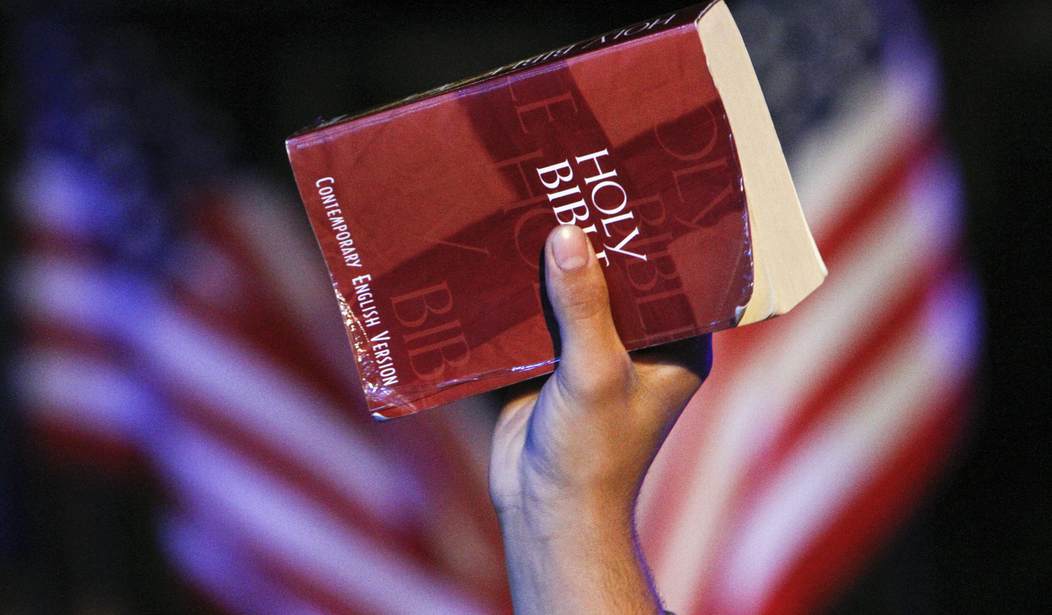Many free speech advocates have pointed out that the anti-Semitism legislation that just passed the House has language that is very problematic and could be weaponized against Christians. That is true, but it does not change the fact that it is, in fact, anti-Semitic and a misinterpretation of the Bible to make the blanket statement “the Jews killed Jesus.”
There are a few passages of the Bible that say that the Jews were responsible for Jesus’s death, usually in the context of trying to convert those Jews (e.g. Acts 4:10, 3:14-15). Jesus Himself says the Gentiles (Romans) will be the ones who crucify him (Matt.20:19). And in other passages, responsibility is placed for Jesus’s death on all sinners (1 Cor.15:3, 1 Pet.2:24, Is.53:5). Some Jews supported Jesus’s death, but Jesus and all of His followers were Jews, too, so essentially at the time two factions of a much larger religion were opposed to each other. To say that “the Jews killed Jesus” is neither more nor less true than to say “Catherine Salgado killed Jesus” or “Americans killed Jesus” or “Matt Gaetz killed Jesus” or “Candace Owens killed Jesus.” And never forget Jesus Christ said, “Salvation is from the Jews” and St. Paul prophesied (Rom.11:26,28), “And so all Israel should be saved … they are most dear for the sake of the fathers.”
Cherry-picking a few verses without context is irresponsible Biblical exegesis, and inevitably will lead to theological misconceptions. In fact, it would put us on the same level as the anti-Christians who could well weaponize the problematic legislation mentioned above by cherry-picking a few verses to pretend the Gospels are anti-Semitic and must be targeted.
Individuals like Rep. Matt Gaetz (R-FL) were right to oppose the legislation in question, since the First Amendment precludes government regulation of speech, but wrong in their reasons for doing so. The issue with the legislation is that the language in it is vague enough that it could be twisted by anti-Christian tyrants — of which there are plenty in government — to apply to the New Testament and Christian symbols such as the cross. The passage particularly raising concerns among Christians is the “Working definition of antisemitism”:
Contemporary examples of antisemitism in public life, the media, schools, the workplace, and in the religious sphere could, taking into account the overall context, include, but are not limited to:
Using the symbols and images associated with classic antisemitism (e.g., claims of Jews killing Jesus or blood libel) to characterize Israel or Israelis.
Again, this could be easily weaponized against Christian symbols and Bible verses by ill-intentioned actors. But, I repeat, totally separate from that, saying simply “the Jews killed Jesus” is still anti-Semitism. As a blanket statement, pretending one small faction of Jews represented the sentiments of the Jewish people, it is so vague as to be inaccurate, and is far too apt to encourage already rampant anti-Semitism. It is key that when we analyze this bill, we correctly diagnose the problem. The issue is that the government has no business whatsoever regulating speech — even speech that is legitimately hateful — and the legislation is badly worded. This is a First Amendment issue, not a theological issue.
Therefore, to sum up, it is terribly dangerous to give the government the power to regulate speech, even when the speech is legitimately prejudiced. Let us, by all means, discuss the First Amendment risks of this congressional bill, but let us also be sure to use a well-rounded, balanced, and accurate Biblical exegesis to do so, that we may be sure to love all men, both Jews and Gentiles, even as Christ did.










